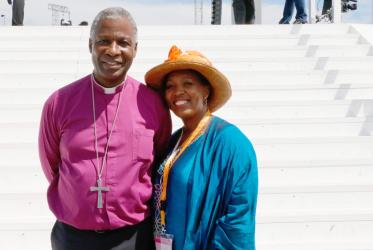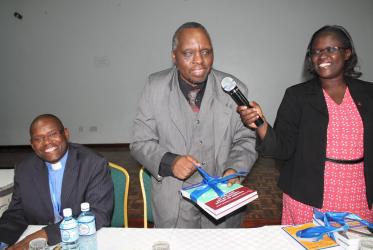Displaying 41 - 60 of 83
04 December 2017
WCC general secretary mourns lost lives, calls for end to violence
11 December 2016
New theological materials offer fresh perspective on disabilities
08 December 2016
Tveit in South Africa: “ We know. We dare. We can.”
12 June 2016








